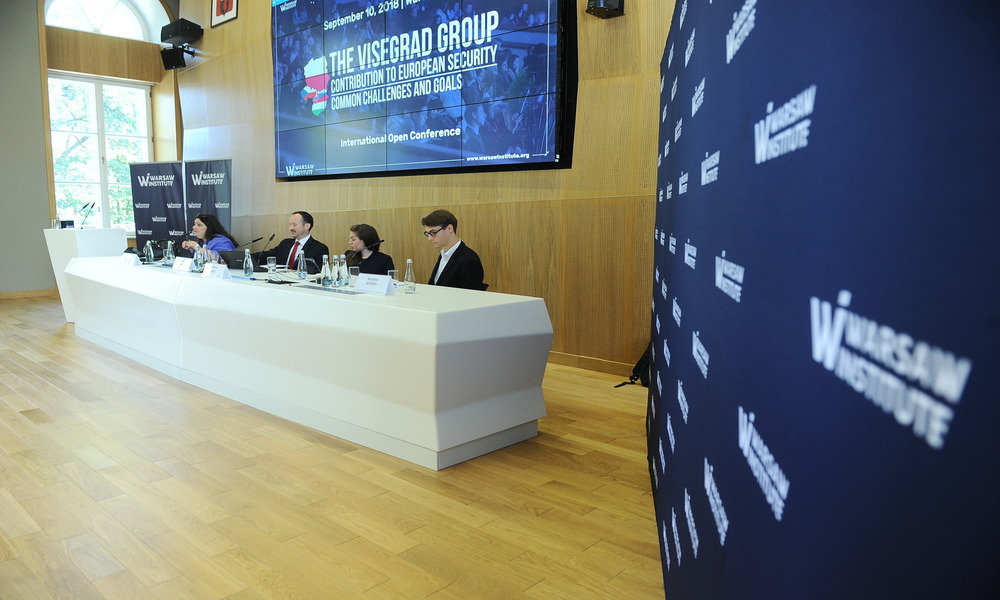V4 REPORTS
Date: 15 November 2018
Security in the V4 countries
The cooperation of the Visegrad countries in the field of security in the European arena was the main topic raised during the one-day international conference at the University of Warsaw. The report presented here is based on the key analyzes presented during the thematic panels. The conference was organized with the financial support of the International Visegrad Fund.

The authors of the report are experts from three Visegrad project partners, European Values Think-Tank (Czech Republic), Slovak Security Policy Institute (Slovakia), Századvég School of Politics (Hungary) and experts from the Warsaw Institute Foundation (Poland).
Table of contetns:
Introduction
I. The Impact of Uncontrolled Migration Movements on Internal Security in European Union
Migration as a European Challenge – Baranyi Tamás Péter
The European Migration Crisis – at the Crossroad between Challenges and Opportunities – Viktor Marsai
The most important dimensions of mass migration regarding the interests of V4 countries – Norbert Tóth
II. Disinformation – Manipulation Methods, Consequences and Neutralization 5
The notion of Russian disinformation – Wojciech Kuchta
Foreign influence operations in light of the Swedish elections held in early September 2018 – Katarina Tracz
Russia’s Influence on Europe – Cécile Vaissié
III. Effective Defence Spending: R&D, Acquisitions and Modernization
V4 Should Improve NATO’s Deterrence Policy Via Solid Defense Policy and Space Technology – Petr Bohacek
Common Threat Perception as a Basis for Any Defence Strategy – Radko Hokovský
V4 Defense Cooperation – Reality vs Aspirations – Marian Majer
The Dynamics and Future Opportunities of Defense Sectors in the V4 Region – Gergely Nemeth
IV. Activities of the Visegrad Group in the Context of the European Security
The Visegrad Group – an important platform for regional cooperation – Piotr Bajda
Visegrad Group – successes, relative successes, symbolic actions and failures – Marcin Kędzierski & Eugeniusz Chimiczuk
Elements of Conceptual Assumptions of Poland’s Policy towards the Visegrad Group and the Three Seas Initiative – Andrzej Zybertowicz
All texts published by the Warsaw Institute Foundation may be disseminated on the condition that their origin is credited. Images may not be used without permission.













